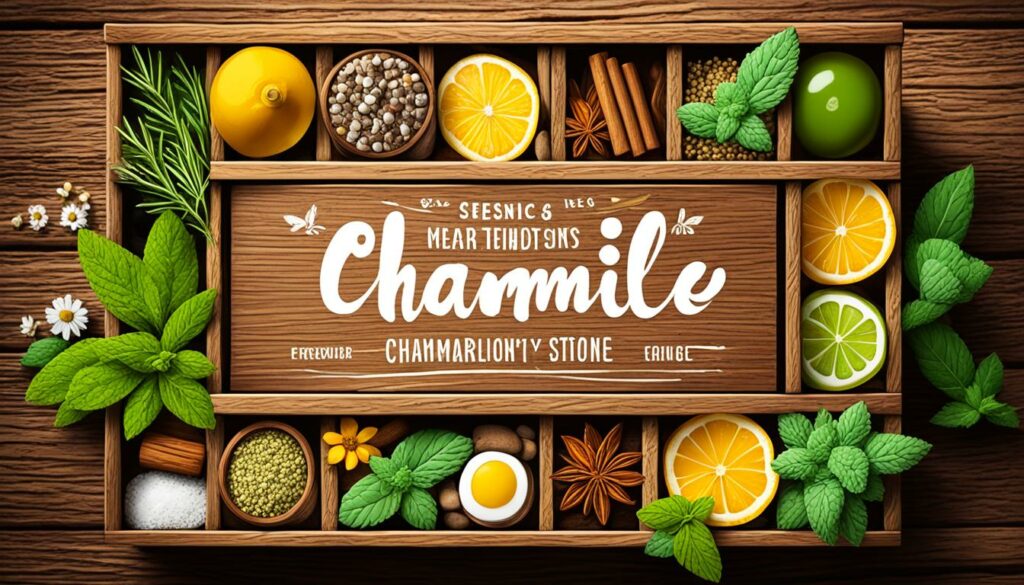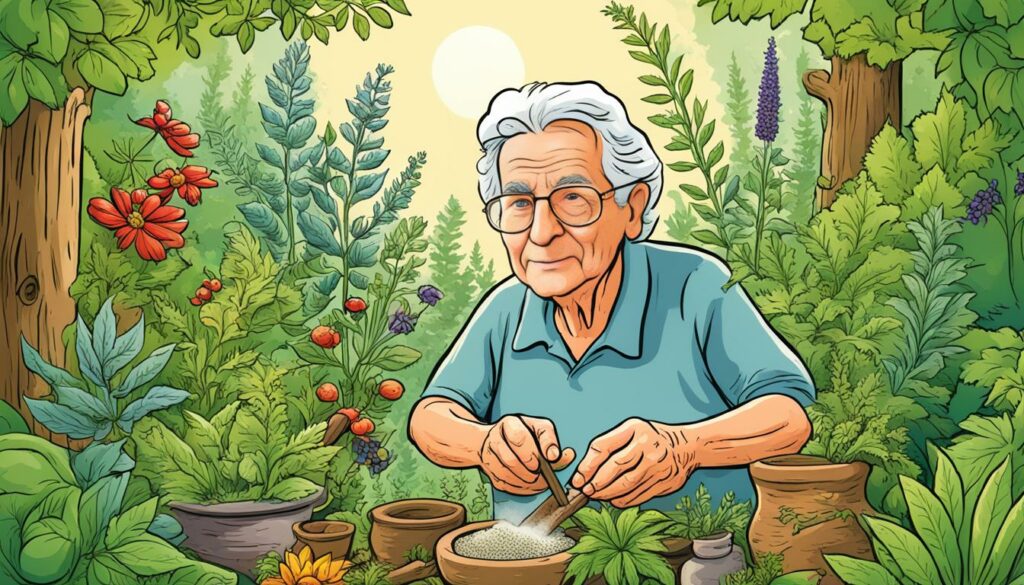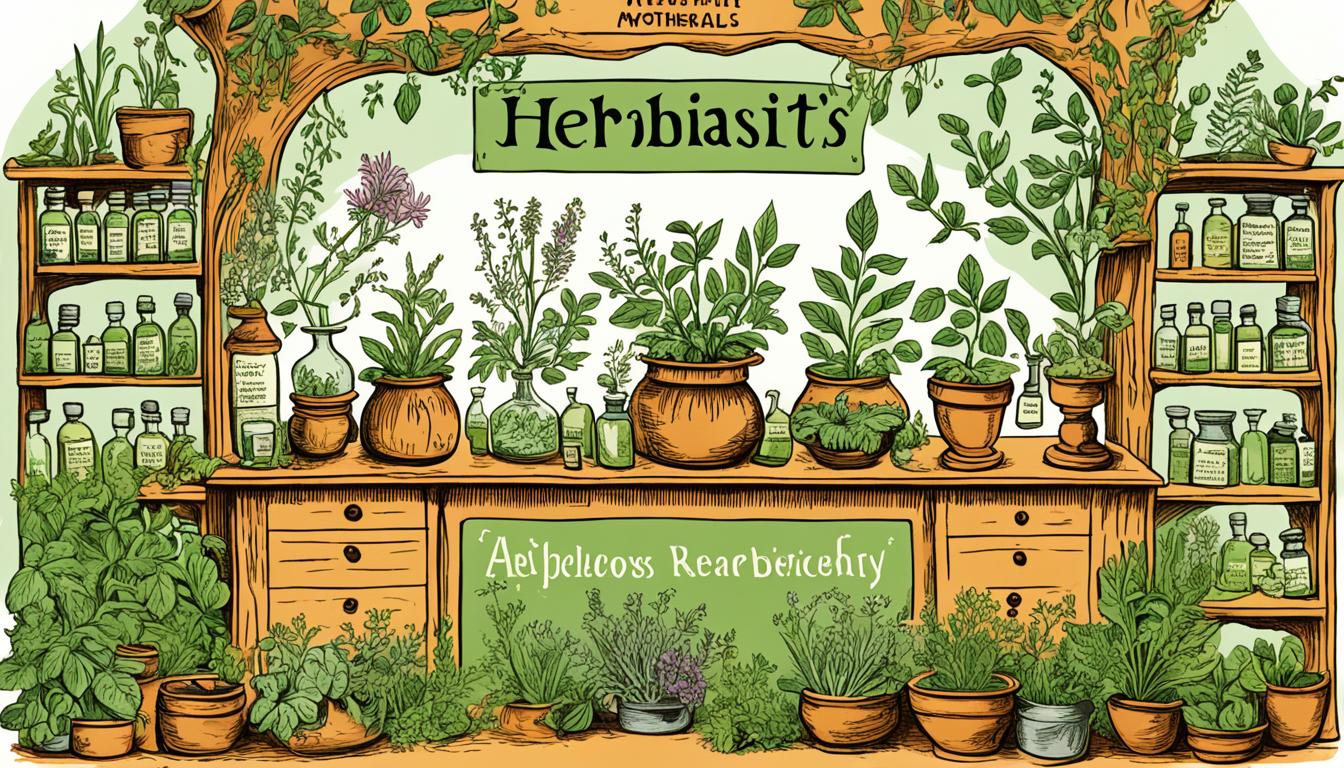Traditional remedies have been used for centuries to address a variety of health conditions. But are these ancient cures merely the stuff of folklore, or do they hold the key to holistic healing? Can alternative medicine and herbal solutions really offer effective and natural treatments? In a world dominated by modern medicine, it’s time to explore the power of traditional remedies and their place in our quest for well-being. Let’s delve into the realm of time-tested therapies, ancient wisdom, and the potential of home remedies to uncover the truth behind the healing traditions of our ancestors.
In this article, we will delve into the role traditional medicine plays in modern healthcare, how it harnesses ancient wisdom to develop pharmaceutical products, and how it can be leveraged to address global health challenges. We will also explore the intersection of new technologies and traditional medicine, the use of herbal supplements, the cultural significance of traditional healing practices, and the exciting future of this evolving field. Get ready to challenge your beliefs and open your mind to the healing potential of traditional remedies. Are you intrigued? Let’s embark on this journey together!
The Power of Traditional Remedies
Traditional remedies, rooted in ancient wisdom and time-tested therapies, have been used across cultures for centuries to address health and well-being needs. These remedies, which include home remedies, herbal solutions, and other natural treatments, have played a significant role in promoting holistic healing and alternative medicine.
While traditional medicine is sometimes seen as pre-scientific, it has made valuable contributions to modern science and medicine. In fact, many landmark drugs and therapies have been developed based on traditional knowledge and ancient cures. For example, aspirin, a widely used medication for pain relief and inflammation, traces its roots back to the use of willow bark in traditional remedies. Likewise, artemisinin, a key treatment for malaria, was derived from traditional Chinese medicine.
Through generations, traditional remedies have been passed down, proving their effectiveness and providing relief for a range of health conditions. These time-tested therapies offer a natural alternative to conventional medicine, often with fewer side effects. They are centered around the belief that the body possesses its own healing mechanisms, and traditional medicine aims to support and enhance these innate abilities.
The Benefits of Traditional Remedies
- Traditional remedies are often more accessible and affordable compared to modern healthcare options.
- They have stood the test of time, demonstrating their efficacy and safety.
- Traditional remedies often focus on treating the root cause of the problem, rather than merely addressing the symptoms.
- Many traditional remedies embrace a holistic approach, considering the physical, mental, and emotional aspects of health.
- Alternative medicine offers a personalized approach, taking into account individual differences and unique needs.
Acknowledging the power of traditional remedies does not discount the advancements in modern medicine. Instead, it highlights the importance of integrating ancient wisdom with contemporary healthcare practices. By embracing a complementary approach, individuals can experience the benefits of both traditional and modern treatments, ultimately leading to improved health outcomes.
Traditional remedies are a testament to the wisdom and knowledge passed down through generations. They offer a holistic and natural approach to healing, serving as a complement to modern medicine.
As we continue to explore the potential of traditional medicine, it is crucial to recognize and respect the diverse cultural practices and indigenous knowledge that contribute to these ancient healing practices. By preserving and studying traditional remedies, we can further expand our understanding of holistic healing and continue to unlock the power of nature’s remedies.

Ancient Wisdom in Modern Medicine
Traditional medicine has played a significant role in shaping modern medical practices. With around 40% of pharmaceutical products today being derived from traditional knowledge and natural sources, the influence of traditional medicine cannot be ignored. This section explores the ways in which ancient wisdom has made its way into modern medicine, resulting in the development of effective treatments.
Natural Remedies Transformed into Pharmaceutical Products
Traditional medicine has provided a rich source of inspiration for the development of pharmaceutical products. Many well-known drugs have their origins in traditional remedies. Let’s take a look at a few examples:
“Traditional medicine has provided a rich source of inspiration for the development of pharmaceutical products.”
| Traditional Remedy | Pharmaceutical Product |
|---|---|
| Artemisinin, derived from sweet wormwood | Treatment for malaria |
| Willow bark | Basis for aspirin |
These examples highlight how traditional practices and remedies have been translated into effective treatments for a range of health conditions. The integration of traditional medicine into modern healthcare systems has opened up new possibilities for patient care and treatment options.

As we continue to explore the benefits of traditional medicine, it is important to acknowledge its role in shaping modern medical practices. The knowledge and wisdom passed down through generations hold valuable insights that can contribute to the development of new and innovative therapies.
Next, we will delve into how traditional knowledge is being leveraged to address global health challenges.
Leveraging Traditional Knowledge for Global Health
Traditional medicine has a rich history of contributing to global health by addressing various health concerns. Ancient healing practices and traditional knowledge have been instrumental in finding solutions for chronic health issues and developing groundbreaking medical innovations.
The Smallpox Vaccine: A Traditional Inspiration
In the fight against infectious diseases, traditional medicine has provided valuable insights. An excellent example is the development of the smallpox vaccine, which was inspired by ancient healing practices. The technique of variolation, where material from smallpox sores was transferred to healthy individuals, paved the way for the discovery of vaccinations.
“The development of the smallpox vaccine is a testament to the remarkable power of traditional knowledge. By leveraging ancient practices and combining them with modern science, we have achieved incredible strides in global health.”
This breakthrough invention revolutionized medicine and demonstrated the potential of merging traditional wisdom with modern scientific advancements.
Addressing Chronic Health Issues through Traditional Healing Practices
Ancient healing practices like yoga and acupuncture have proven effective in managing chronic health issues such as back pain and stress. These practices, rooted in traditional medicine, offer holistic approaches to healing and well-being. By embracing traditional methods alongside modern therapies, individuals can achieve better outcomes in managing chronic health challenges.
The Integration of Traditional and Modern Approaches
Integrating traditional and modern approaches to healthcare can lead to more effective solutions for global health challenges. By leveraging the knowledge passed down through generations and collaborating with scientific advancements, traditional medicine can play a vital role in finding innovative treatments and preventive measures.
The synergy between traditional medicine and modern healthcare practices holds immense potential for improving global health outcomes and addressing the diverse health needs of different populations.

| Benefits of Leveraging Traditional Knowledge for Global Health | Examples |
|---|---|
| Enhanced understanding of natural remedies | The use of herbal medicine in treating various ailments |
| Improved management of chronic health conditions | The integration of yoga and acupuncture in traditional and complementary medicine |
| Development of innovative treatments | The discovery of the smallpox vaccine |
| Holistic approaches to healthcare | Traditional healing practices that consider mind, body, and spirit |
By recognizing the value of traditional knowledge and incorporating it into global health initiatives, we can pave the way for a more comprehensive, patient-centered approach to healthcare.
New Technologies and Traditional Medicine
New technologies are driving exciting advancements in the study and practice of traditional medicine. The integration of artificial intelligence (AI) and functional magnetic resonance imaging (fMRI) is revolutionizing our understanding of traditional medical knowledge and its applications.
AI algorithms and machine learning capabilities are unlocking the vast potential of traditional medicine by leveraging centuries-old wisdom and combining it with cutting-edge technology. Scientists and researchers can now explore traditional remedies, analyze their effectiveness, and identify new therapeutic possibilities.
Functional magnetic resonance imaging (fMRI) plays a crucial role in unraveling the mysteries of traditional practices such as yoga and meditation. By studying the brain activity of individuals engaged in these practices, researchers gain valuable insights into their physiological and psychological benefits. This deeper understanding paves the way for evidence-based integration of traditional healing modalities into modern healthcare.

These advancements in technology offer a wealth of opportunities for the development of new clinically effective drugs. By combining the intuitive and holistic approach of traditional medicine with the precision and scientific rigor of modern technology, we can uncover groundbreaking treatments for a range of health conditions. The synergy between new technologies and traditional medicine holds great promise for the future of healthcare.
| New Technologies in Traditional Medicine | Benefits |
|---|---|
| Artificial Intelligence (AI) |
|
| Functional Magnetic Resonance Imaging (fMRI) |
|
| The Synergy |
|
Herbal Supplements and Traditional Medicine
Herbal supplements play a significant role in traditional medicine as botanical products with therapeutic properties. Derived from plants or botanicals, these supplements are used to treat various diseases and maintain overall health. They come in various forms, including capsules, tablets, powders, and teas, and can be used internally or externally, depending on the intended purpose.
Traditional medicine has long relied on herbal remedies to address a wide range of health conditions. The use of plants and botanicals in traditional medicine dates back thousands of years and is rooted in the belief that nature provides valuable healing properties. Through the extraction and preparation of specific plant parts, such as leaves, flowers, or roots, traditional healers and practitioners create herbal remedies known as phytomedicines.
Botanical products used in traditional medicine are believed to work synergistically with the body, promoting natural healing processes and restoring balance. These remedies often have a long history of traditional use and have been passed down through generations as effective treatments for various ailments.
Traditional medicine harnesses the power of nature to provide holistic care and promote overall well-being. Herbal supplements are an integral part of this ancient system, offering a natural alternative to conventional treatments.
It is important to note that while herbal supplements are widely used by consumers, they are not subject to the same stringent regulations as pharmaceutical drugs. This means that their safety, efficacy, and quality may vary. Therefore, it is crucial to consult with a healthcare professional before incorporating herbal supplements into your healthcare regimen.
Another important consideration is the potential for interactions between herbal supplements and other medications. Some herbal remedies can interact with prescription drugs, over-the-counter medications, or even other herbal supplements, leading to adverse effects or reduced efficacy. Seeking guidance from a qualified healthcare provider can help ensure the safe and effective use of herbal supplements.
Despite these considerations, herbal supplements continue to be popular due to their perceived naturalness and potential health benefits. Many people turn to herbal remedies as a complementary approach to conventional medicine, seeking to enhance their overall well-being through the power of botanicals.

Benefits and Use of Herbal Supplements
Herbal supplements offer a range of potential benefits, depending on the specific botanical used and the intended purpose. Some common uses of herbal supplements include:
- Promoting immune system function
- Supporting digestion and gastrointestinal health
- Relieving stress, anxiety, and sleep disturbances
- Managing joint pain and inflammation
- Enhancing cognitive function and memory
- Supporting healthy skin, hair, and nails
It is essential to follow recommended dosage guidelines and to choose high-quality herbal supplements from reputable brands or manufacturers. This can help ensure the purity, potency, and safety of the product.
The Importance of Evidence-Based Research
As the popularity of herbal supplements continues to grow, so does the importance of evidence-based research. Scientific studies play a crucial role in understanding the efficacy, safety, and potential interactions of herbal remedies. Research helps validate the traditional knowledge associated with these botanical products and allows for informed decision-making in healthcare.
By conducting rigorous studies, researchers can evaluate the effectiveness of specific botanicals, identify potential risks, and determine optimal dosage recommendations. This evidence can then be used to guide healthcare professionals and consumers in making informed choices about herbal supplements.
The Role of Traditional Medicine in Different Cultures
Traditional medicine has been an integral part of various cultures worldwide, providing valuable insights into cultural practices and indigenous knowledge. From African countries to Asian cultures and indigenous communities, traditional medicine plays a significant role in healthcare and wellbeing.
African Countries: Cultural Practices and Healthcare
In African countries, traditional medicine is deeply rooted in cultural practices and is considered a vital resource for healthcare. Indigenous healers, known as traditional healers, bring generations of knowledge and experience, using medicinal plants, spiritual rituals, and other traditional remedies.
Traditional medicine in Africa encompasses a holistic approach, focusing on the interconnectedness of the mind, body, and spirit. It is often combined with Western medicine to provide a comprehensive healthcare system that caters to the unique needs of local communities.
Asian Cultures: Integrating Traditional Medicine
In Asian cultures, practices like Chinese Traditional Medicine and Kampo in Japan have long been integrated into healthcare systems. Traditional Chinese Medicine (TCM) encompasses acupuncture, herbal medicine, dietary therapy, and other modalities based on traditional philosophies.
TCM focuses on restoring balance and harmony in the body, as well as addressing the root cause of illnesses rather than merely treating symptoms. Its integration into mainstream healthcare reflects the recognition of its efficacy and its ability to complement Western medical practices.
Indigenous Communities: Cultural Heritage and Healing
Indigenous communities all over the world have their own traditional healing practices deeply connected to their cultural heritage. These practices often incorporate natural remedies, spiritual rituals, and traditional ceremonies to promote physical, mental, and emotional wellbeing.
Indigenous healing approaches honor the interconnectedness of humans with nature and focus on the respectful and sustainable use of resources. These practices are passed down through generations, preserving cultural traditions and indigenous knowledge.
“Traditional medicine in different cultures reflects the wisdom and knowledge accumulated over centuries, embodying cultural practices and indigenous understanding of health and healing.”
Traditional Medicine in Different Cultures
| Culture | Key Characteristics |
|---|---|
| African Countries | Rooted in cultural practices, holistic approach, integration with Western medicine |
| Asian Cultures | Integration of traditional medicine in healthcare systems, emphasis on balance and harmony |
| Indigenous Communities | Preservation of cultural heritage, natural remedies, spiritual rituals |
Traditional medicine, with its emphasis on cultural practices and indigenous knowledge, offers a unique perspective on healthcare and healing. By recognizing and integrating traditional medicine into modern healthcare systems, we can appreciate the value it brings and leverage its potential for the betterment of global health.

The Future of Traditional Medicine
Traditional medicine, with its rich history and time-tested remedies, continues to be an area of extensive research and development. Scientists and medical professionals are constantly exploring the potential of traditional medicine to discover new drugs and treatments that are derived from natural products. The utilization of traditional remedies in the development of innovative healthcare solutions is an ongoing process with promising results.
One of the key focuses of research in traditional medicine is the development of standardized formulations. By standardizing traditional remedies, researchers aim to ensure consistent quality, potency, and safety. This development is crucial in enhancing the efficacy of traditional medicine and enabling its integration into modern healthcare systems. Increased regulation and quality control measures are paving the way for the wider acceptance and use of traditional medicine in clinical settings.
The future of traditional medicine holds great potential for improving health outcomes. As more research is conducted, we can expect to see traditional medicine further integrated into mainstream healthcare practices. The combination of ancient wisdom and modern scientific advancements promises a holistic approach to patient care. With the ongoing exploration and development of new drugs derived from natural products, traditional medicine is poised to play a significant role in addressing the health challenges of the future.
FAQ
What are traditional remedies?
How has traditional medicine influenced modern medicine?
How is traditional knowledge used to address global health concerns?
What role do new technologies play in traditional medicine?
What are herbal supplements?
How is traditional medicine practiced in different cultures?
What does the future hold for traditional medicine?
Source Links
- https://www.hopkinsmedicine.org/health/wellness-and-prevention/herbal-medicine
- https://www.who.int/news-room/feature-stories/detail/traditional-medicine-has-a-long-history-of-contributing-to-conventional-medicine-and-continues-to-hold-promise
- https://www.ncbi.nlm.nih.gov/pmc/articles/PMC6273146/

